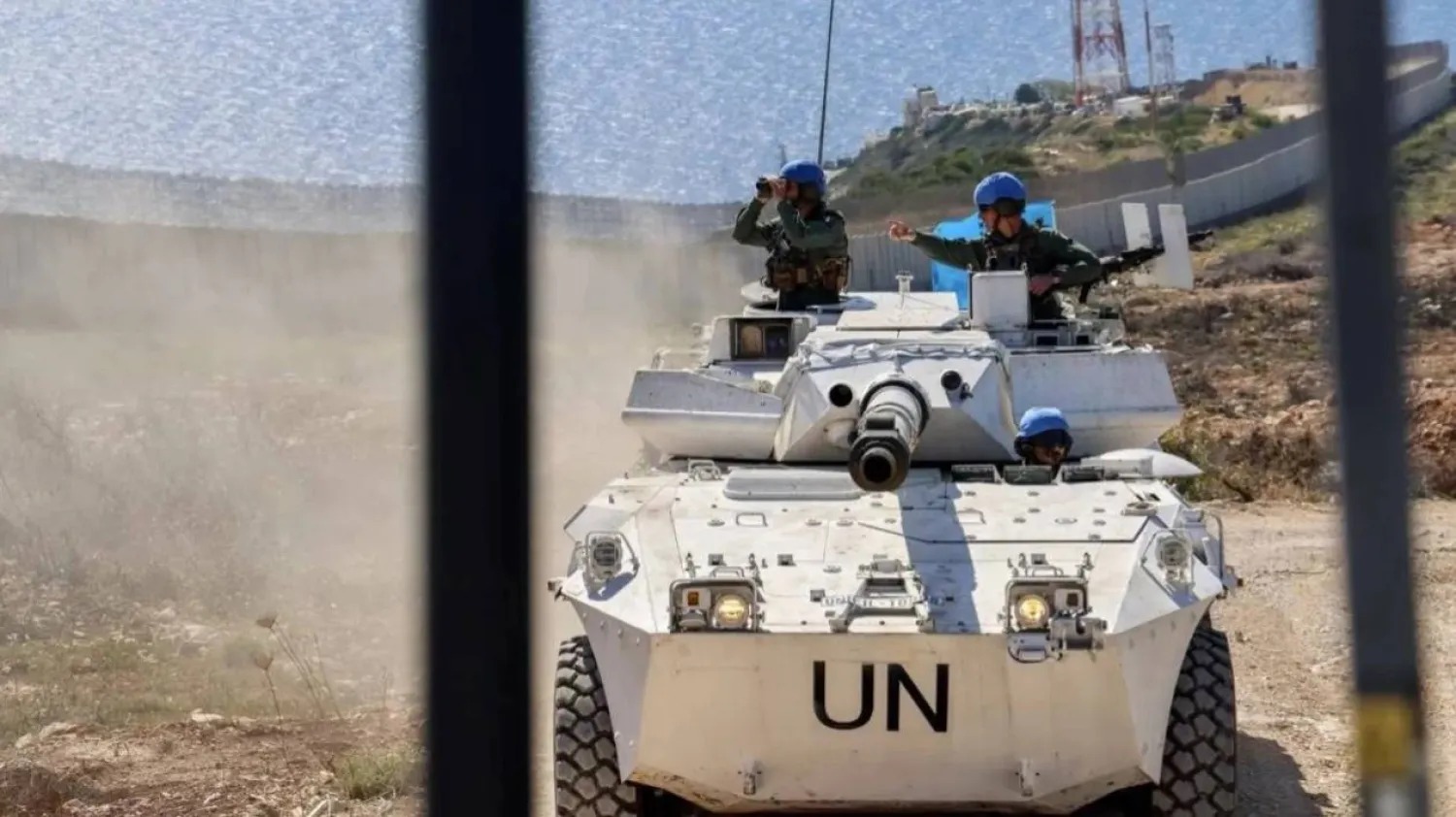Lebanon’s government and the United Nations peacekeeping force (UNIFIL) have reaffirmed that patrols in southern Lebanon would continue uninterrupted, after two young men briefly blocked a UNIFIL convoy in the first such incident since a ceasefire between Israel and Hezbollah took effect in November.
Two local youths riding a motorcycle intercepted a UNIFIL armored patrol vehicle on Friday, forcing it to withdraw. A video circulated online showed one of the men saying, “They are not allowed to enter without the Lebanese army.”
The incident occurred in Tayr Debba, some 20 km north of the Israeli border but still geographically south of the Litani River.
Candice Ardell, deputy director of the UNIFIL Media Office, said peacekeepers were conducting a patrol in support of UN Security Council Resolution 1701 when their convoy was twice obstructed by civilians.
Peacekeepers took an alternate route and were pursued for a short time, but were able to continue their planned patrol, Ardell said. She added that UNIFIL had reported the incident to the Lebanese army.
Ardell reminded all parties that UNIFIL operates in close coordination with the Lebanese Armed Forces (LAF) and that any interference in the peacekeepers' duties violates Lebanon's commitments under Resolution 1701.
Government moves to contain incident
Lebanon’s government moved quickly on Saturday to contact the UNIFIL leadership and members of the five-party mechanism overseeing the ceasefire to contain the fallout from the incident.
A senior government source told Asharq Al-Awsat that “immediate high-level contacts were made to confirm that UNIFIL patrols will continue and that the mission will proceed with its mandate.”
Following the renewal of its mandate last August, UNIFIL pledged to work closely with the LAF, carrying out patrols across its area of operations south of the Litani, where about 20% of patrols are conducted jointly with the Lebanese army.
Last week, Lebanon’s President Joseph Aoun approved the extension of UNIFIL’s mandate for another year.
UNIFIL forces remain visible on the ground around the clock under the authority granted by Resolution 1701, which is the framework for maintaining stability in southern Lebanon along the Blue Line separating Israel and Lebanon.
The ceasefire monitoring mechanism - known as the “Quintet” - includes UNIFIL, the Lebanese army, the Israeli army, and representatives from the United States and France, with Washington currently leading the group.
Public anger simmers
The obstruction has raised questions about whether the incident was a deliberate message to UNIFIL, possibly linked to Hezbollah.
Before the outbreak of hostilities on October 8, 2023, Hezbollah was often accused of orchestrating similar incidents through civilians to restrict UNIFIL’s movements.
However, retired Brig. Gen. Mounir Shehadeh, a former government coordinator with UNIFIL, said the latest incident appeared to be an isolated act.
“This was an individual action by a citizen and had nothing to do with Hezbollah,” Shehadeh told Asharq Al-Awsat, adding that the group had shown full cooperation with the army since the ceasefire began.
Still, Shehadeh acknowledged growing frustration among southern residents over what they see as UNIFIL’s failure to deter Israeli violations.
“People feel that while Lebanon is expected to fulfill all its obligations, Israel is not held accountable,” he said, pointing to daily Israeli raids, home demolitions, and cross-border attacks.
“This resentment fuels public anger at UNIFIL, but the latest obstruction was a personal act, with no link to Hezbollah,” he emphasized.
Political tensions surface
The incident echoes previous protests against UNIFIL’s movements in southern Lebanon, often blamed on Hezbollah, particularly in the lead-up to the Gaza war.
Ali Mourad, an anti-Hezbollah political activist, said such incidents are shaped by a political environment that fosters suspicion of the United Nations and the Lebanese army.
“These actions are not spontaneous,” Mourad told Asharq Al-Awsat.
“They send a political message - one that ultimately harms Lebanon’s own interests.”
Mourad urged southern political leaders to prioritize cooperation with UNIFIL, noting that both Hezbollah and its ally Amal had previously endorsed the ceasefire agreement.
“Obstructing UNIFIL damages Lebanon’s standing and plays into Israel’s hands by suggesting rejection of Resolution 1701,” Mourad said.
He stressed that any disputes with UNIFIL’s activities should be handled exclusively by the Lebanese state.
“It is the state’s responsibility to coordinate with UNIFIL, not individuals acting on their own,” he said.
“We must entrench the culture of turning to state institutions in all matters of dispute.”
UNIFIL said last Tuesday that its peacekeepers continue to patrol the Blue Line and report independently to the Security Council, even under extreme pressure.
During their patrols, they frequently encounter unexploded ordnance and remnants of war that pose dangers to civilians, the Lebanese army, and the peacekeepers themselves, it said.









